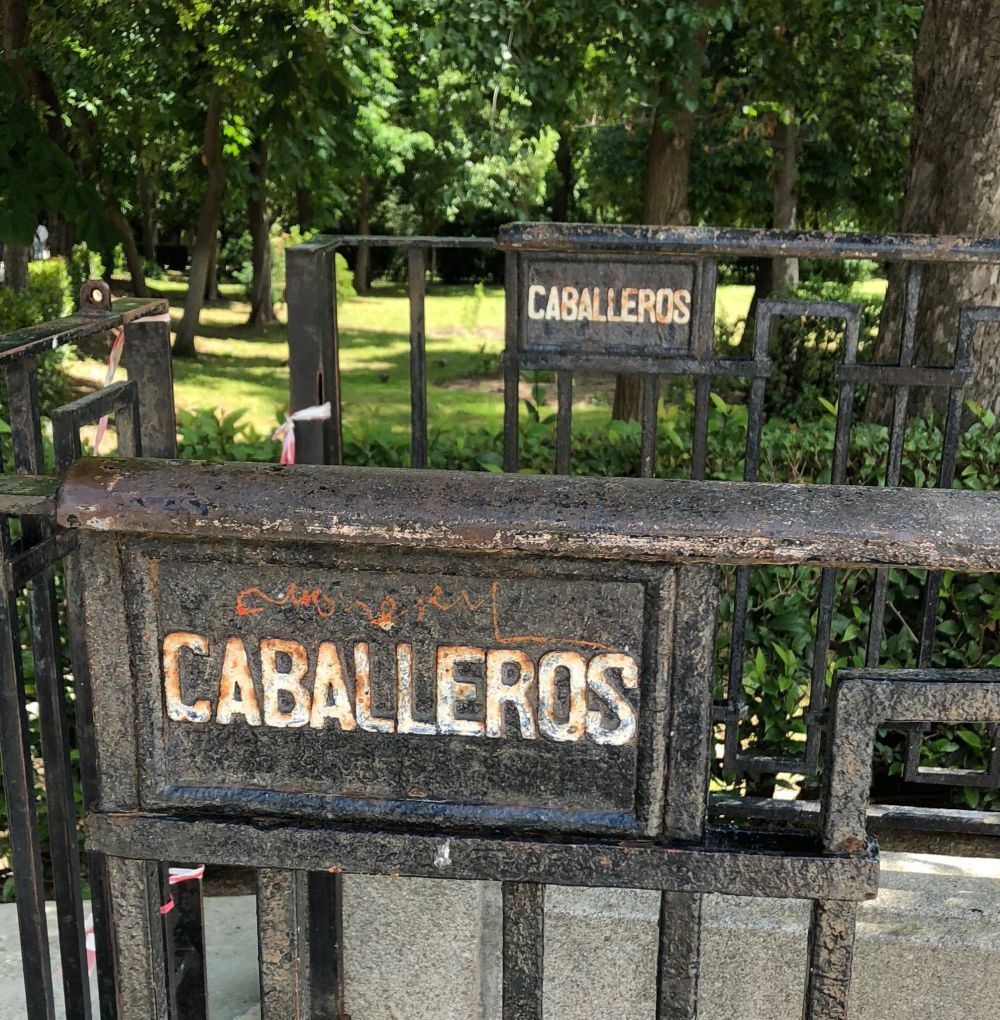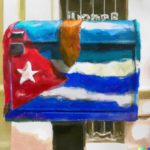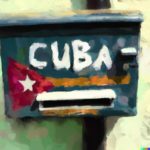Letztes Update: 24. May 2021
What you should have in your medicine chest

After a whole series of trips to Cuba, I have had some experiences with medicines that are needed in Cuba. Since some of you do not fly to Cuba as often or you are going for your first time, I would like to make some recommendations in the following.
First of all a disclaimer, with such a topic I need to say that:
I am not a doctor and only speak from my personal experience. If you want to know more, ask your doctor or pharmacist!
The travel diarrhea: Montezuma’s revenge
After the Indians were almost exterminated by our diseases, they looked for revenge and they came up with exactly that: the diarrhea that likes to infect us while traveling is also called Montezuma’s revenge!
There is a whole range of medicines to help against Montezuma’s revenge, but you should go for the strongest ones. Loperamide, such as the well-known Loperamid/Immodium, is a classic remedy that works quickly but should not be taken for long. The active ingredient of loperamide simply turns off the tap, which can be a relief 😉
Those who do not want to let it come to that, are well-advised to take a preventive preparation. My pharmacy recommended Perenterol, which is not cheap, but it really helps, so you don’t need strong medication at all. Start therapy 5 days before the holiday – be careful, buy enough so that you can take it continuously!
The diarrhea remedies sold in Cuba (US-American!) are too weak, expensive, and are not really helpful, so be sure to stock up at home!
One note by the way: if you only eat cooked food at home, you generally don’t need diarrhea medication – at least that’s my experience. This is partly due to hygiene and partly due to the orientation of the typical Cuban food. Rice, the basis of Cuban food, is good for digestion.
 So it doesn’t matter if you drink the cocktails with ice, at least for me it didn’t make any difference. I guess the alcohol makes sure that no harmful germs take over. There are studies that show that an alcohol content of over 10 percent is quite effective against these germs.
So it doesn’t matter if you drink the cocktails with ice, at least for me it didn’t make any difference. I guess the alcohol makes sure that no harmful germs take over. There are studies that show that an alcohol content of over 10 percent is quite effective against these germs.
If you want to do without alcohol, you can always drink out of a bottle or can, which is standard in Cuba also in restaurants: there is a glass to drink, but you pour your drink from a can or freshly opened small bottle.
Toilets
 The toilets sector operates in a similar environment. Among other things because of poor water supply or the small number of toilets in restaurants, they often do not look very clean, toilet paper, towels, and soap can not be expected. Standard equipment should be a cleaning lotion, this can often replace the non-existent hand washing water and soap. It is a pleasant feeling to go to the toilet before eating and then have reasonably clean hands…
The toilets sector operates in a similar environment. Among other things because of poor water supply or the small number of toilets in restaurants, they often do not look very clean, toilet paper, towels, and soap can not be expected. Standard equipment should be a cleaning lotion, this can often replace the non-existent hand washing water and soap. It is a pleasant feeling to go to the toilet before eating and then have reasonably clean hands…
For sensitive people, a disinfectant spray is definitely recommended. The Cuban toilet cleaners always want to get your money, but they rarely do anything! By the way, it is traditional to give one Peso Nacional to the cleaners, as a tourist you can give 5 to 10 CUC-Cent, that is enough. But if you see that the toilet staff kneels in, then I would also give 50 CUC-Cent.
A quick note: what are the toilets called in Cuba? If you want to know – sometimes you need to know 😉 – then read on here!
Toilet paper
One of our German professors swears to take toilet paper on his Cuba trip. Not for the whole trip, of course. Just two rolls. In hotels, there are often no spare rolls and the current roll is almost empty. If you get Montezuma’s revenge, you could end up in despair. It doesn’t matter if the cleaning staff sells the toilet paper or if it’s just because of the general shortage that there is no toilet paper in hotels…
Drinking water
Drinking tap water is almost unavoidable. Even those who do without ice cubes still come into contact with tap water through freshly washed dishes and glasses. This often leads to Montezuma’s revenge, again.
You can and should avoid drinking tap water in any case. You can buy water bottles everywhere cheaply, if you have a stove in your Casa, you can boil the water. Most germs die with short boiling, if you want to be absolutely sure, let the water boil longer.
My special recommendation is to use disinfection drops or tablets that you can drip into the tap water so that it is disinfected. The active ingredients oxidize all pathogens and keep them sterile for a long time. The advantage is that you can take the drops with you everywhere and have a solution at hand quickly.
One more thing I have to mention, because it is actually very spectacular: UV-C light also disinfects and there are now 100g light filters that shine through your water. In the past, this was only possible in water treatment plants. If you are interested in something like this, ask in your trekking shop!
Normal water bottles should cost under one CUC. If they’re more expensive, you’ll get ripped off.
If you order water in a restaurant, the bottle is usually opened at the table so that you can see that it is not tampered with – and that you are not drinking tap water instead. Therefore many people drink the carbonated water, which is not easy to manipulate in Cuba because there are no Soda Stream machines 😉
In general, if the water smells funny, if it is dirty etc., be careful.
But that almost never happens in Cuba – at least my experience. Either they try to cheat you – like in state hotels – or eveythings is perfect.
Important: Aspirin and dengue fever
One of the less pleasant diseases that can be contracted in Cuba is dengue fever. It is transmitted by mosquito bites and leads to a high fever. As long as you are in good health, it will knock you out, but you will recover. However, there can be complications: in rare cases dengue fever leads to internal bleeding. If you take Aspirin or Ibuprofen/Neurofen, these do not stop and you could bleed to death internally. This is why only Paracetamol is sold in Cuba. So, leave your Aspirin at home and take Paracetamol with you!
Tissues and tampons
If there is a shortage, a small pack of tampons, for example, can be bought in the pharmacy for 8 to 10 CUC. In Cuba, bandages are usually used. I just saw an advertisement for Moon-Cups on TV – reusable devices that capture the blood – maybe something for a longer stay in Cuba.
Something like balsam handkerchiefs is pure luxury. As for almost all hygiene and care products, what you can get is four to five times more expensive than outside of Cuba. Creams etc. are therefore also a nice present.
Sunscreen

Almost always essential, but you really need it in Cuba. Even on cloudy days, the sun is burning, even in winter, so buy sunscreen at home, if you – like me – have a bald head, a hat should be part of your luggage! I got one of my strongest sunburns on a cloudy day in Varadero, where I even had to put on my autumn jacket. A round trip in the tourist bus, upper deck, without a hat and already I had burned my scalp 😉
Mosquito Spray
Not only because of the dengue fever but also simply because the mosquitoes can be quite annoying, you should not do without a mosquito spray. Especially when you sit outside in the evening, the mosquitoes like to get at your ankles and feet. And what really gets on my nerves are mosquitoes in the bedroom, which then start to buzz. So always take enough spray with you!
I heard the other day that mosquitoes don’t like the wind. So try the fan you have in your room – but I wouldn’t rely on it alone, the Cuban mosquitoes are professional vampires and I don’t think a little wind will deter them 😉 But in case of need, if you don’t have a remedy with you, it would be worth a try! Another tip: below 20 degrees the Cuban mosquitoes become lame. So if you like to sleep cold (and use a lot of electricity), you can also turn on the air conditioning.
In general: a mosquito repellent for Cuba should contain at least 50% DEET, otherwise, it won’t work.
I got a tip from Iris on Facebook: Coconut oil is said to work wonders against Cuban mosquitoes. As this is much healthier, I will try the oil soon!
Other insects
By the way, other insects are not so common in Cuba. There are cockroaches, yes, but in well-kept accommodations, they are rather rare. And if you look closely they are disgusting but do nothing. On the bright side, there are almost no wasps in Cuba, and although wasps look very elegant, up to 40 people die from their bites every year in Germany! Nobody died of cockroaches lately, though.
Cuban pharmacies

The Cuban health system is world-famous, but unfortunately not quite up to date. Indeed, every Cuban can go to a polyclinic and receive treatment for normal illnesses almost immediately (similar to the walk-in centers of the NHS in England).
However, the supply of medication is not so good. Pharmacies have maybe 100 to 200 items, and that includes toothbrushes and similar stuff. Therefore: everything you need and take on a regular basis, you should definitely take with you (vitamins, antihistamines, your medication, hygienic products, creams etc.). Especially the air condition in the plane can quickly give you the travel sniffles. Therefore, please also think about throat pills and nasal spray. And don’t forget handkerchiefs, because they are not available either. They are, by the way, also a good present. So if you have handkerchiefs left at the end of the trip, they are a better tip than real money.
Antibiotics
Especially if you have children, it is advisable to visit your family doctor beforehand and ask if he can prescribe some broad-spectrum antibiotics for your child in advance. If an infection occurs, the Cuban doctors can check whether the corresponding antibiotic is effective (the active ingredients are internationally labeled) – because usually, the corresponding antibiotics are not necessarily available in Cuba or only with difficulty.
Mini First Aid Kit
It can’t hurt to take a small first aid kit with you, it should contain everything you need, from plasters to bandages, various creams to a thermometer and wound disinfection.
You don’t have to take all this back home, you can give it to a Cuban 🙂
Travel warnings of the Foreign Office
The latest travel warnings from the German Foreign Office, e.g. with references to Zika, can be found here (in German). Everything is updated regularly and you are on the safe side.
If you need vaccinations, look at our blog post here – in short: the more you are in the country side and among people, the sooner you need a vaccination.
Transport of medicines
A short note on the transportation of medication. The rules for liquids on the plane also apply here, i.e. if you have bottles of cough syrup, contact lens fluid, or similar with you that are larger than 100 ml, they must be put in your suitcase, otherwise, they will be taken away from you at the airport security check!
If you need to take important medication, make sure to have it with you twice, e.g. hand luggage and suitcase, or in one suitcase and the other. It happens that suitcases get lost and do not reappear until the end of the trip!
Older travelers
Since I also flew to Cuba with my parents, some tips for older travelers: Cuba is a tropical country, i.e. it stresses the circulation quite differently than, say, Spain. Then there is the long flight, which is a strain on the body. It is best to consult your family doctor beforehand, who will advise you whether you need e.g. thrombosis stockings or other things. And don’t forget your circulation medication (yes, it happened to my father!!!)
Emergency
The Cuban emergency numbers for the ambulance, fire brigade and police can be found here!
Contraceptives
Yes, one should also think about that for Cuba. There are condoms, but they are not always easy to get. So: who knows what will happen, take some contraceptives with you, it can’t hurt 😉
Can you think of something else that you absolutely have to take with you? Write to us or post it under the article, your experiences will surely be helpful for others – especially on the subject of first-aid kits and what you take to Cuba!
Saludos from Berlin,
Dietmar










